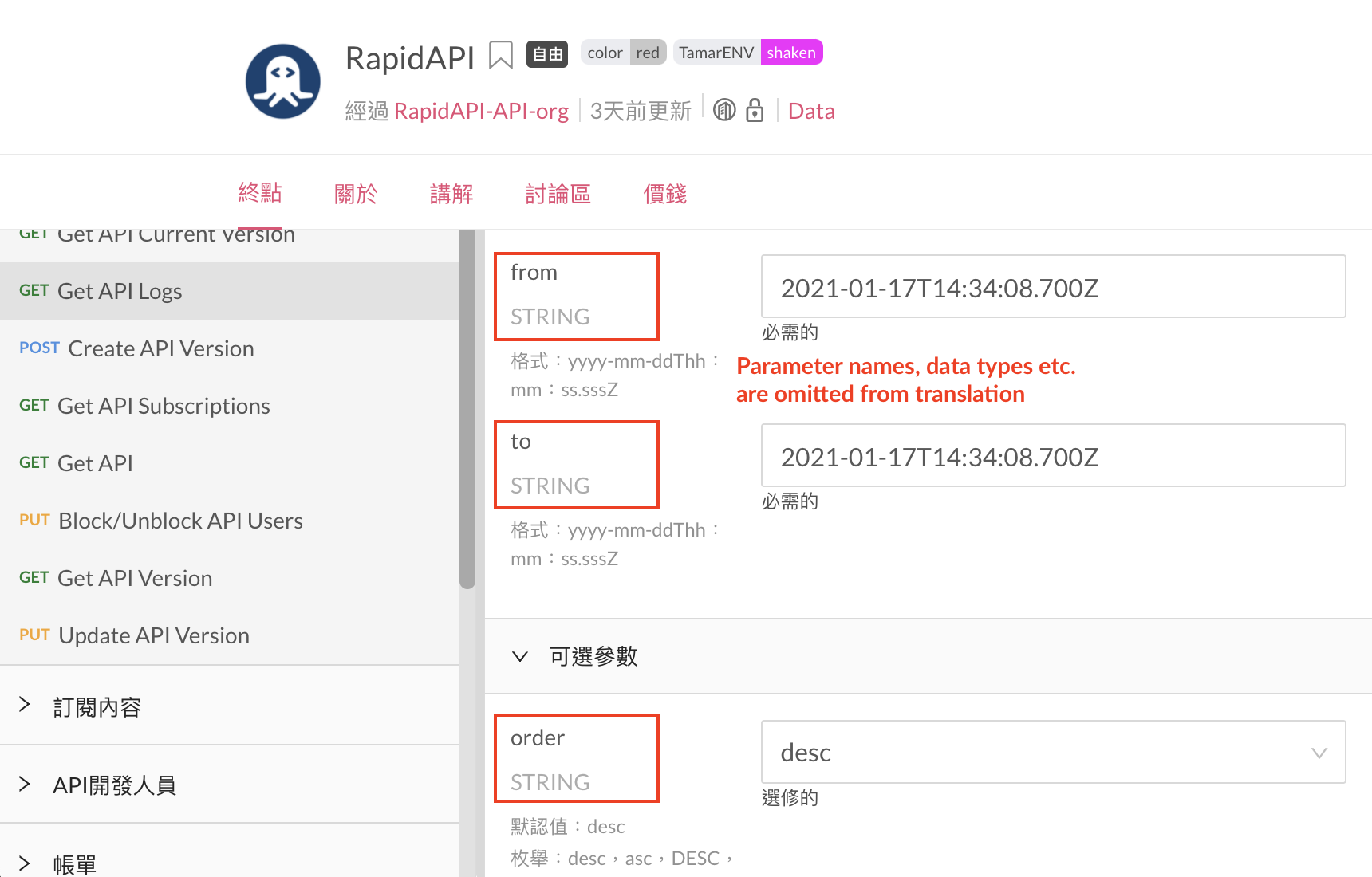FAQs - RapidAPI Hub
Frequently asked questions about the RapidAPI Hub
What is RapidAPI?
RapidAPI is the world’s largest API hub where over three million developers find, test, and connect to thousands of APIs — all with a single account and API key.
How do I reset a compromised API key?
If your API key has been compromised, you can generate a new one. Once you have a new key, you can delete the compromised key while still preserving your application's existing analytics. Create the new key from your Developer Dashboard in a few easy steps by following the guide on our API Keys & Key Rotation page.
How can I change my credit card?
To change the card, you can go to the Billing Information page on your Developer Dashboard. There you will see your current credit card information as well as a way to edit or delete your credit card.
Deleting your credit cardIn order to delete your credit card, you must first unsubscribe from all the APIs your account was using.
Why was my credit card declined?
Sometimes depending on the bank's fraud protection settings, a bank will decline the validation charge we make when we attempt to be sure a card is valid. We recommend first contacting your bank to see if they are blocking our charges. If more help is needed, please contact support at https://support.rapidapi.com/ and our team will investigate further.
Does an API have ___ functionality?
With so many APIs available on RapidAPI (created by thousands of different API providers), there is a wide variety of API functionality you can find. The two biggest recommendations we have for seeing what data and functionality an API has:
-
Contact the API provider to ask them directly. API providers are the best resource of knowledge for their API, so you can contact them through the API's Discussions tab.
-
Test out the API yourself before subscribing to a paid plan. Many APIs will have a free BASIC plan available for this purpose. This allows you to make a few calls and see exactly what data and functionality an API provides right from your browser.
What are the three metrics shown on API listings?
There are three metrics shown on each API listing on the RapidAPI Hub: Popularity, Average Latency (last 30 days), Service Level (last 30 days).
Popularity: Popularity is a number between 1 and 10. The higher the score, the more popular the API is on RapidAPI. Popularity is based on a formula that considers the number of requests and the number of users of the API.
Average Latency: Average Latency is the average time it takes to receive a response from the API in milliseconds. It is calculated based on calls made within the last 30 days.
Service Level: Service Level is the percentage of successful calls made to the API within the last 30 days. This calculation is based on the number of 2xx responses compared to the number of 5xx responses.
What should I do if I’ve found an API that is fraudulent or falsely advertising what it provides?
Our entire team wants to ensure you have the best experience possible while using RapidAPI. Unfortunately, there can be times when an API provider has listed an API that does not provide the functionality advertised. If you see different results or data than what the API is advertising, please contact support at https://support.rapidapi.com/.
When does the daily pricing quota window reset?
RapidAPI provides a lot of customization for how API providers set up their pricing. One of these options is the ability to set a daily quota limit. The daily quota period starts at your time of subscription and ends 24 hours later. For instance, if you subscribed to an API at 11:30:15 UTC on June 2, your daily quota will reset at 11:30:15 each day.
Where can I find the exact subscription start time?Go to the Transaction History section of your Developer Dashboard to see a list of your invoices. Opening one of your invoices will show the exact time of subscription.
Does RapidAPI support localization?
RapidAPI pages can easily be translated and localized by browsers with built-in translators (Chrome, Safari), as well as popular 3rd party tools like Google Translate. Additionally, pages are designed in such a way that technical content specific to the API, such as request parameters and schema properties will not be localized. This prevents unexpected translations.

No special setup is required within RapidAPI. Please refer to your browser's documentation on how to enable translations.
(For providers) How should I price my API?
We generally recommend using all four of the available pricing tiers. Having a free pricing plan (with a small number of requests available) is vital to a good experience for a developer using your API. With a free plan, the developer is able to make a few test requests and guarantee the API functions as expected.
Then for the PRO, ULTRA, and MEGA plans, we recommend having a good distribution of pricing. Each API is different based on API operating costs, but in general, we have seen the following work well:
BASIC - Free with a Hard Limit in place
PRO - $25
ULTRA - $75
MEGA - $150
Updated 8 months ago